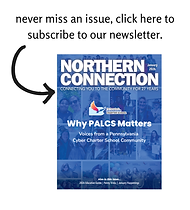So Why December?
- Laura Piotrowski Arnold
- Dec 1, 2022
- 3 min read
By Paula Green
December is a busy month with all the hustle and bustle of the holiday season. But it is also a month for tranquility, as quoted from Luke 2:14 in the Bible, “on earth peace, goodwill toward men.” But sadly, peace is not always the case. Some historical battles occurred during December; there were some underlying causes as to why these events happened when they did.
Tensions were brewing between Japan and the United States in December 1941. Japan was out to destroy the U.S. Pacific Fleet, and they performed their well-conceived on December 7, 1941. The timing of this brutal attack was based on striking when the U.S. was vulnerable, and the weather also factored in. The Japanese chose a Sunday because many businesses were closed that day, and it also held religious significance for many. In addition, numerous military personnel was attending off-base services, leaving the ships in the harbor understaffed.
As to why they specifically targeted the date December 7, it boils down to the weather conditions, the aerial attack fleet needed good visibility for the attack to be effectively pull-off. Any amount of cloud cover would have made it challenging to identify vital targets. By choosing a clear-skied Sunday in December, the Japanese fleet was, unfortunately, able to do precisely what they had intended.
More than a century before Pearl Harbor, General George Washington planned a holiday assault; the enemy was expecting it since it was Christmas. The Battle of Trenton proved to be one of the most definitive moments of the American Revolution. The events began to unfold on December 25, 1776. During nightfall on Christmas Day, an army of 2,400 Continentals under the command of Washington crossed the frigid Delaware River to surprise Hessian troops quartered downstream in Trenton, New Jersey.
Washington and his troops landed undetected on the hostile shores; the rebels marched all night in the freezing rain to reach their objective. At daybreak, the soaked and shivering attackers overpowered the German mercenaries, who had been up late celebrating Christmas. Although minor in military terms, the victory served as a morale booster and inspired re-enlistments.
A Civil War conflict also developed around the holiday season; it was another attempt to catch the enemy off-guard. The First Battle of Fort Fisher began on December 24, 1864, and ended with a Union retreat three days later, on December 27. The battle included a naval artillery bombardment from the Union fleet, which resulted in minimal damage to their defenses and little loss of life to the Confederate defenders. The Union attempted a land assault, but conflicting information and commander disagreements resulted in the cancellation of the assault and a retreat of the Union.
Operation Linebacker II has been considered the action that ended the U.S. involvement in the Vietnam War. President Nixon ordered the bombings to begin on December 18 after the North Vietnamese delegates walked away from the peace talks. The operative was called the “December Raids.” The only day both sides got a reprieve was Christmas, when the troops were given a 36-hour break to celebrate. During that time, Nixon ordered the North Vietnamese to return to the bargaining table. They refused, so the bombing continued until December 29, when they agreed to resume the peace talks. These talks led to the Paris Peace Accords, which were held in January 1973. The U.S. ended its involvement in the war soon after.
Northern Connection magazine salutes our troops, and we wish you a blessed holiday season.
.png)
















Comments